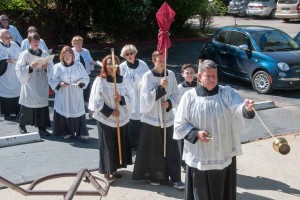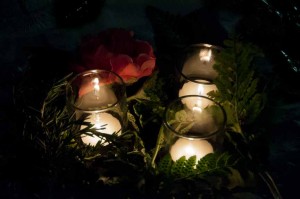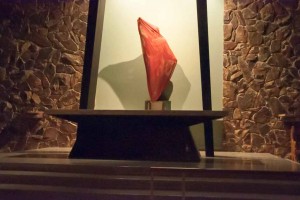 Doing the same thing over and over? Whether it’s the same relationship drama or returning to the addiction, over and over, as if self-destruction were our default mode. Almost as if we have no choice.
Doing the same thing over and over? Whether it’s the same relationship drama or returning to the addiction, over and over, as if self-destruction were our default mode. Almost as if we have no choice.
Change is hard. We choose, unconsciously and deliberately, habits that don’t work. St. Paul despaired over doing what he didn’t want instead of the good he wanted (Romans 7:19). Call it sin, or just normal.
Holy Week is the answer. Holy Week, like all worship, is participatory. There’s more than just reading the stories. We get out of the pews. We read parts in a drama. We are doing more than remembering because these events are more than a holy history. The events of Holy Week tell us who we are. Reading and studying the Biblical texts will never be enough.
What happens to Jesus during Holy Week directly confronts us with the endless dilemma of choice. Jesus’ mistake is to try to give the people he taught, and us, the way to wholeness. You would think everyone would be all over that! Not only the leaders saw Jesus’ new ways as a threat. In the end, even his closest followers abandoned him when the price of following him became too high.
Not that everyone was happy with what happened next. At the end of the Gospel for Palm Sunday, the Roman centurion overseeing everything recognizes the regrettable outcome: “Surely this man was innocent.”
Oh, well. Regret and repentance are part of our story as well–what difference do they make? The drama of Holy Week answers that question as well. None. We cannot go back and undo the destruction.
“this drama answers the question of why we need God. By ourselves there is no hope, only the emptiness of our own destruction.”
Maundy Thursday and Good Friday leave us in an empty space. What hope is there? None at all. We can’t change, won’t change, and even if we could, we can’t go back and undo the destruction. There is nothing we can do–a dangerous message.
With nothing to do, we might do just that. Self-indulgence seems to be the best choice we have. That would be true, if our hope depended on us.
 Finally, this drama answers the question of why we need God. By ourselves there is no hope, only the emptiness of our own destruction. The Good News of Easter is that God chooses to change that. In the Resurrection God reverses our decision, undoing damage we can’t undo. The response to this gift is the rest of our story.
Finally, this drama answers the question of why we need God. By ourselves there is no hope, only the emptiness of our own destruction. The Good News of Easter is that God chooses to change that. In the Resurrection God reverses our decision, undoing damage we can’t undo. The response to this gift is the rest of our story.
But for now, let’s see what we need: a hope beyond our own strength. Holy Week shows us the direction to go.
